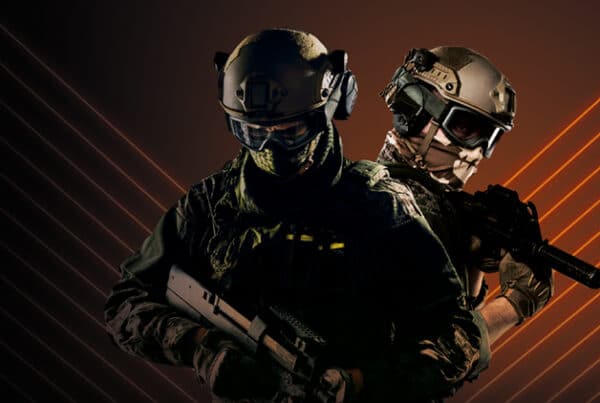G3 sat down with Adam Conway, Head of Esports & Competitive Gaming, to discuss his role within SIS Competitive Gaming.
Could you tell me more about your role as Head of Esports & Competitive Gaming and how you are finding the position compared to Head of Trading?
Unlike my previous role, I’m now responsible for the whole product. Our CEO, Richard Ames, wanted me dedicated solely to Competitive Gaming. It’s exciting to be part of the project which is huge focus for SIS going forwards. There is a lot I’ve learnt from horse and greyhound racing which I’ve been able to transfer across and apply to the product.
Where does Competitive Gaming sit within the wider structure and ecosystem of SIS? How does esports complement the overarching betting strategy?
It sits across the other products we have – trading, 24/7 horse and greyhound racing, , and numbers – and serves as another revenue opportunity. We offer over 150,000 live CG events each year with events and bet types that sports bettors are familiar with.
The 24/7 nature of Competitive Gaming complements our other 24/7 products. We don’t just have good content for three o‘clock on a Saturday afternoon. Day or night, there is always engaging live content for our domestic and international customers alike this is very important.
How is Competitive Gaming built specifically for sportsbooks and sports bettors? What is being optimised for betting rather than video games mean in practice?
Partly it’s by looking at what isn’t currently working in esports. Tournaments aren’t built with betting in mind, they’re not 24/7, they lack timeliness – nobody can say when they will start or finish, nor do they consider betting integrity. The focus is more on who is going to win the tournament than the bettor at home.
There is often latency in the streaming. Having our own secure studios means we overcome that challenge. We cover all betting markets and are always active, ultimately that’s what we mean by ‘built for betting’.
What operational challenges has Competitive Gaming faced since you took charge of the product?
We have a management team dedicated solely to the Milton Keynes operation where we have multiple streams and a senior operations manager that sits between both our CG locations. Operationally we’ve transitioned over time as we’ve gained experience.
When we set out, it was about ensuring we had the right gamers and that games were set up in the right way. Now we understand what good looks like and have a proper understanding of how the product works, we’ve brought in more people with an operational and management background.
We knew what we wanted to do and how to do it, so the main concern was about making sure the service runs well. While ensuring integrity of the matches was a priority at all times.
What is holding back esports from being a trusted event to bet on?
Our approach to esports with monitoring, referees, low latency, knowing how our gamers play gives us an edge. Once the set-up is explained to operators, they become comfortable and encourages them to make the esports leap they might not otherwise have done.
On a game-by-game basis, having a referee visible on-screen every match is unique to us. The referee is responsible for making sure everything is set up in the correct manner and that the gamers are performance is at their best at all times. Their visibility is important for the end customer to offer them reassurance they might not get from other esports products.
CS:GO is quite the step change from Ebasketball and Esoccer. How big an undertaking was the transition to a first-person shooter from NBA and FIFA?
Esoccer and Ebasketball targets both sports bettors and esports fans so it made sense to start there, and it has worked well as an event class for Competitive Gaming. With CS:GO, we’re looking at a slightly different target audience. Counter-Strike is one of the most intuitive of the traditional esports games and offers an opportunity to target more traditional esports fans.
CS:GO complements what we’re doing and broadens our product set from sports simulation titles. Our approach to Counter-Strike is unique, it’s 2v2 and fast-paced. Like Esoccer and Ebasketball, everyone involved in producing the product is highly skilled, the relevant betting markets are there, and our casters bring it to life for bettors.
What difficulties do you face in scaling up the CS:GO set-up to 24/7 whilst maintaining a round-the-clock operation across the whole Competitive Gaming suite?
For CS:GO, we are currently ramping up to two 24/7 streams, equating to 25,000 events based from Manchester. This will run parallel to the six studios we already running 24/7 in Milton Keynes. With two maps per event, we’ll have 50,000 maps and a range of betting markets across each. This takes us to over 150,000 annual events and the plan is to keep going. We will then expand further, with the next step being 500K Competitive Gaming events a year.
For Esoccer and Ebasketball we did a soft launch, and this has been very much the same. It has given the whole team a chance to hone the product, gets gamers up to the standard we want them, gives referees experience, ensures everything is operationally tight and that the trading team intrinsically grasps the odds and software. We alreadyhave a number of customers lined up and will be going 24/7 soon – exciting times!
SIS has partnered with Oddin.gg to provide odds and trading support to customers for CS:GO. How important is providing operators with reliable data and credible information about team members?
From a trading point of view you need enough historic data to create algorithms, an in depth understanding of the title and pre-match probabilities. With Competitive Gaming, everything that happens is recorded, filmed, watched, and analysed again after the event.
We have a perfect understanding of our gamer pool and then we have skilled traders reacting to what they are seeing. If something is deviating from expectation, traders are there to assess the significance of this deviation and adjust accordingly. Oddin.gg are specialists in this field and have been doing it a long time.
How big an issue is streaming latency in esports? What issues does latency present bettors and should in-house streaming be mandatory?
In-house streaming overcomes any integrity issues you can have with end bettors believing they are watching something live but are in fact a few minutes behind. From an operator and sportsbook perspective, it’s even worse if traders are behind and some of the customer base is gaining a time advantage – that poses huge integrity problems.
I’m not sure about mandatory as that’s not for me to say, but certainly if I was back in my role at Ladbrokes, I’d be looking for content that is very low latency. I have big concerns about anything where I’m not seeing real-time action.
Should esports betting events such as Ebasketball and Esoccer be placed within the basketball and football sections of the sportsbook? What is the best means of placement to optimise turnover?
It’s an interesting question and one we’ve pondered a lot. CS:GO sits neatly in esports, but Esoccer and Ebasketball could both be seen as esports and in a class of their own. Some operators are placing them alongside traditional sports and as they’ve moved across, we’ve seen significant spikes in turnover.
If you take the recent as an example, that’s a crossover event because traditional esports fans are watching and betting on the tournament and it crosses over into what we’re doing with Competitive Gaming. It’s match after match with numerous betting opportunities.
Ideally, we recommend operators position our products both under esports, but also place the Ebasketlball and Esoccer under the Basketball and Soccer tabs. In time I’d expect to see more operators have a standalone Esports section at the top of the page.
What is the next expansion and evolution of Competitive Gaming?
We have had lots of conversations internally about what to do next. We’re looking at both traditional esports and another sports simulation. Rocket League is an interesting proposition as it’s a crossover between a sports sim and traditional esports that is intuitive to both sports punters and fans of the game.
Personally, I like the idea of an ice hockey game – it’s also quick, intuitive, and easy to bet on, and tennis is very popular and another option on the table as well as other big esports titles like Dota. Ultimately, the decision will be customer-driven.




